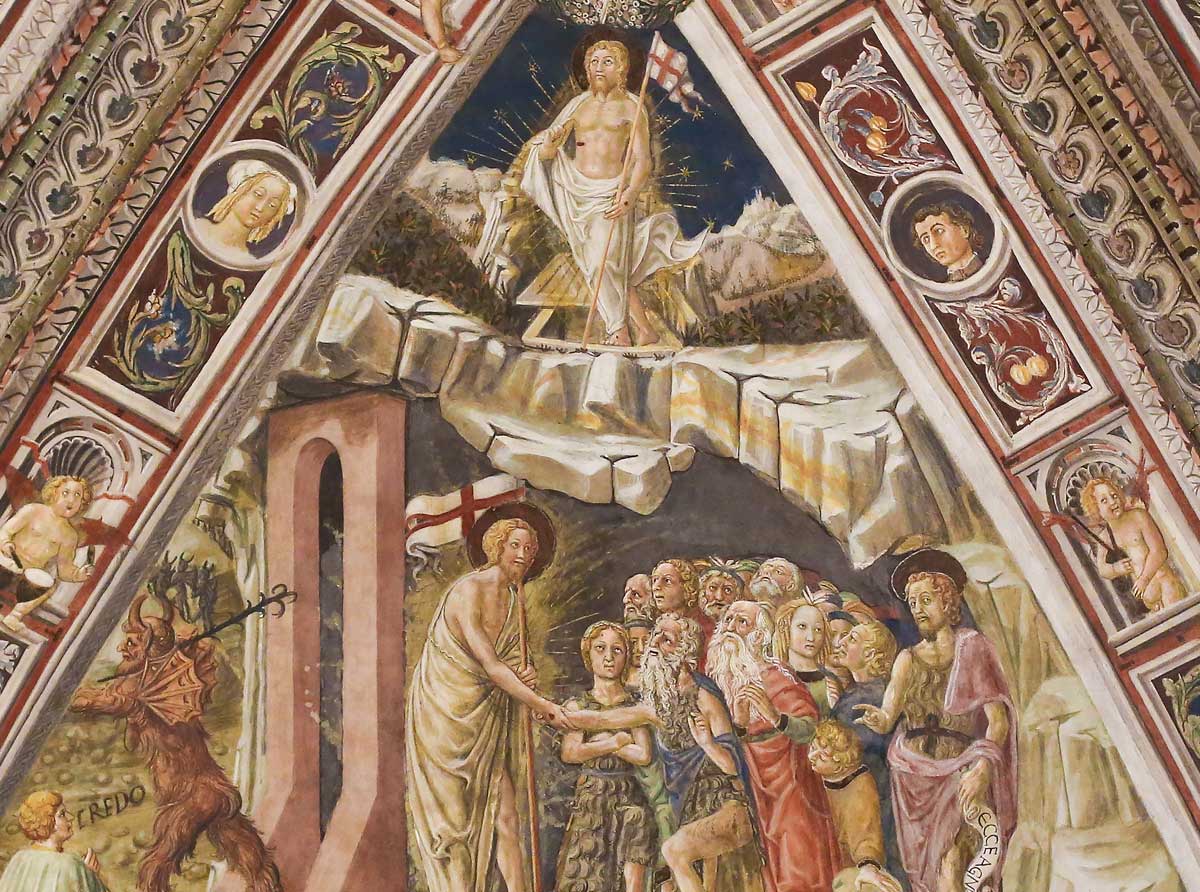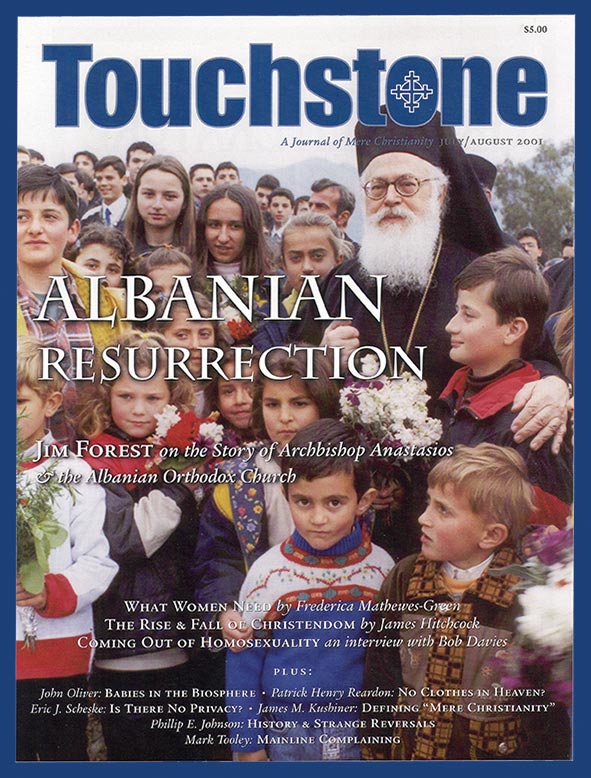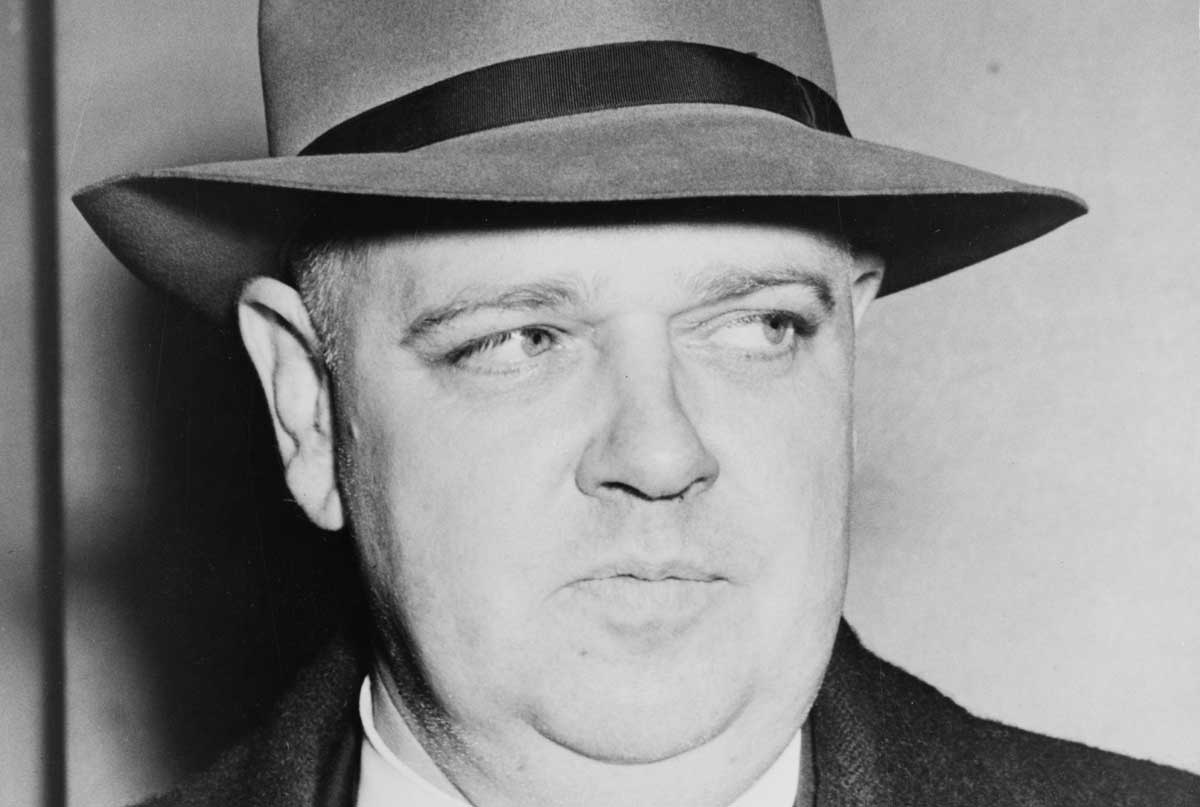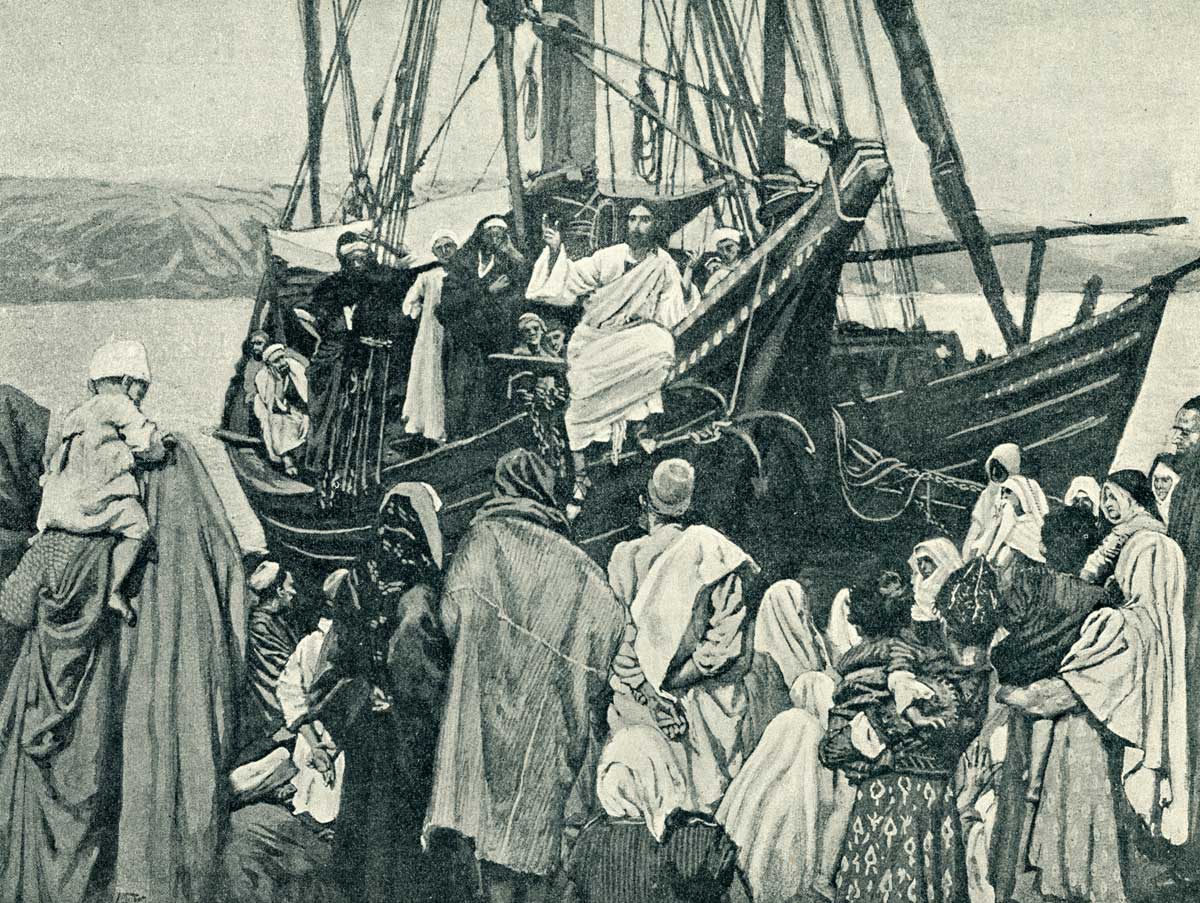The Transformed Relics of the Fall
Patrick Henry Reardon on the Fulfillment of History in Christ
While I confess that certain ascetical considerations, as well as constraints of time, have kept me from investigating—as perhaps I should—the theological roots of nudism, I would not be surprised to learn that this . . . well, phenomenon had something to do, in its origins, with the denial of Original Sin.
Doubtless this suspicion betrays my deep bias in the matter, but the Bible’s inclusion of clothing among the effects of Adam’s fall has always elicited my ready assent. Consequently, I have ever been disposed to associate nakedness with Rousseau’s view of man’s native innocence (in spite of his predilection for the Swiss in their frozen, snow-bound Alps).
But this consideration prompts a question. While we Christians most certainly do believe that all human beings share somehow in Adam’s fall, does not our gracious incorporation in the New Adam put a vast distance between ourselves and that Early Unpleasantness in the shadow of the paradisiacal Tree? Because of Christ, after all, God is not displeased with us. Though I must quote the text from memory, I recall a statement from the Council of Trent that “God hates nothing in those who have been reborn” (In renatis nihil odit Deus). Would any Christian disagree with this?
Why Clothing?
If this is so, however, why do we still wear clothing? I pose the query to open a theological discussion, obviously, not to throw down a challenge. I have no sympathy with the luckless Münster Anabaptists who persuaded themselves that those reborn in divine grace, thereby purged from Adam’s fall, need no longer bear the badge of Adam’s shame.
Given the premise, that is, that they were covered in the righteousness of Christ, they concluded that it was not necessary to be clothed in anything else. Alas for them, one recalls that their thesis was not widely shared by other Christians, and enthusiasm for radical Anabaptism in Münster rather quickly went cold.
But why? Just what is there about the Christian “feel for things” that disinclines us thus to display ourselves and claim thereby our prelapsarian heritage? Surely part of the answer to this question has to do with what are traditionally called “the remnants of sin,” that vestigial concupiscentia reminding us that even the justified are still offenders and that there is no man who liveth and sinneth not. Whatever their varying views of sin, all Christians believe something like this.
I want to suggest, nonetheless, that there is something more involved here. In considering this matter of our clothing, we will uncover, not only the psychological remnants of our ancient shame, but also an important aspect of our final glory. In time’s last hour, after all, when the voice of the archangel will trumpet us forth to the tribunal of the returning Christ, Holy Scripture gives us every reason to believe that we will still be wearing clothes. Even when the secrets of hearts will be revealed, the secrets of bodies will not.
We touch here, I submit, an important aspect of redemption itself. According to the imagery of the Bible, it involves a mysterious transformation of certain human experiences, especially cultural forms, that are associated in their origin, or at least their earliest historical expression, with the fall. That is to say, the new life in Christ includes his taking hold of and entirely remolding certain components of life that were not part of man’s original, innocent state. Even as he vanquishes sin, God does not simply undo or reverse the effects of man’s fall. Rather, he assumes these same effects, particularly cultural effects, into a larger expression of man’s ascent.
This truth is perhaps most readily exemplified in the phenomenon of clothing. As we have been reflecting, man’s sin created the problem of nakedness, and hence the solution of clothing, as described in the first book of the Bible. In the Bible’s last book, nonetheless, when man’s sin has in every last sense been conquered, we do not see the human race returned to the nakedness of its primitive, unfallen state.
Patrick Henry Reardon is pastor emeritus of All Saints Antiochian Orthodox Church in Chicago, Illinois, and the author of numerous books, including, most recently, Out of Step with God: Orthodox Christian Reflections on the Book of Numbers (Ancient Faith Publishing, 2019).
bulk subscriptions
Order Touchstone subscriptions in bulk and save $10 per sub! Each subscription includes 6 issues of Touchstone plus full online access to touchstonemag.com—including archives, videos, and pdf downloads of recent issues for only $29.95 each! Great for churches or study groups.
Transactions will be processed on a secure server.
more on history from the online archives

14.6—July/August 2001
The Transformed Relics of the Fall
on the Fulfillment of History in Christ by Patrick Henry Reardon

15.6—July/August 2002
Things Hidden Since the Beginning of the World
The Shape of Divine Providence & Human History by James Hitchcock
more from the online archives
calling all readers
Please Donate
"There are magazines worth reading but few worth saving . . . Touchstone is just such a magazine."
—Alice von Hildebrand
"Here we do not concede one square millimeter of territory to falsehood, folly, contemporary sentimentality, or fashion. We speak the truth, and let God be our judge. . . . Touchstone is the one committedly Christian conservative journal."
—Anthony Esolen, Touchstone senior editor












